Category: medical marijuana
Cannabis Facility Construction Expands into Virginia with Design-Build Project for Dharma Pharmaceuticals

CHICAGO, IL (AUGUST 12, 2021) – Cannabis Facility Construction (CFC), a national, full-service, cannabis design-build construction firm, is pleased to have completed construction on a new medical dispensary for Dharma Pharmaceuticals in Salem, Virginia.
“We’re thrilled to partner with Dharma Pharmaceuticals to support their entry into the emerging Virginia medical cannabis market,” said Andy Poticha, Principal at Cannabis Facility Construction. “Our clients value our extensive design-build expertise and our ability to provide speed to market, which is essential to opening quickly and correctly.”
The new medical dispensary is located at 1634 W. Main Street in Salem. To create a differentiated and welcoming customer experience, careful consideration was given to customer flow between easy-to-browse product displays and point of sale stations so consultations and transactions can take place with social distancing in mind. In addition to the wood and masonry retail space in the front, the dispensary includes secure vaults for inventory storage, back office space, and a highly advanced security system.
“Cannabis Facility Construction’s ability to help us achieve speed to market is essential and one of the reasons we decided to work with them,” said Jack Page, Market Leader for Green Thumb, which acquired Dharma on July 1. “They provided the right value to convert the space into the medical dispensary and had the right experience to hit the ground running.”
For more information on these and other projects by Cannabis Facility Construction, visit www.cannabisfacility.net.
Construction On Cannabis Dispensary Begins

Northbrook Patch | Jun 17, 2020 – Construction is underway on a new recreational and medical dispensary at 755 Skokie Blvd. in Northbrook. Cannabis Facility Construction, a national, full-service, cannabis design-build construction firm based in Northbrook, announced the news Tuesday. The facility will be run by Greenhouse Group LLC.
The Northbrook location will be a national flagship location for the brand, according to a press release. The site, offering nearly 10,000-square-feet of finished space, is the former home the Rehabilitation Institute of Chicago. The vacant Marathon Gas station at 430 Dundee Road will be consolidated into one lot.
“As their preferred design-build partner, CFC has delivered multiple dispensaries for Greenhouse over the past five years in various states across the country,” said Andy Poticha, principal at Cannabis Facility Construction, in the release. “We are now especially excited to have this opportunity to build their largest flagship location right here in our own backyard.”
Read more at Northbrook Patch
What’s New for America’s Most Popular Cannabis States?
2019 has been the year of the cannabis plant in the United States. New states have joined the recreational cannabis club, young medical programs are exploding, mature ones are diversifying, and the Northeast is inching along. Here is the latest on the nation’s most popular cannabis states.
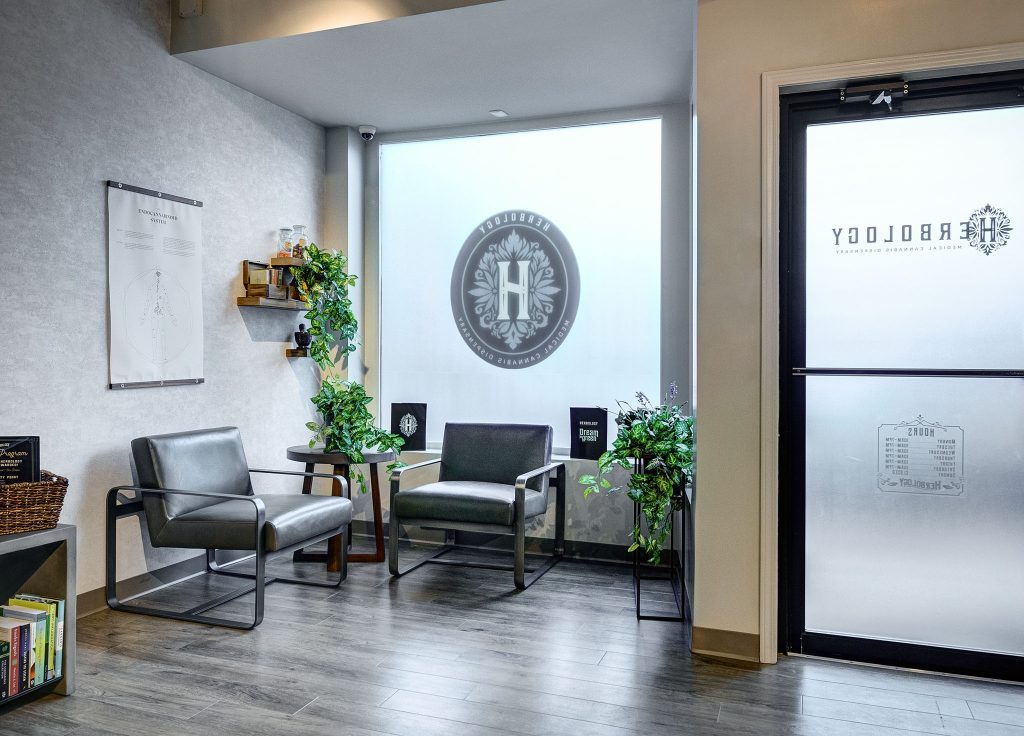
Colorado’s Cannabis Program Adds Versatility
Changes are coming to Colorado’s medical and recreational cannabis programs. House Bill 1230 will allow legal social consumption at businesses like dispensaries, restaurants, hotels, and music venues. Home-delivery of medical cannabis can begin in 2020, followed by recreational in 2021 thanks to the passage of House Bill 1234. In response to the state’s opioid epidemic, Governor Jared Polis signed the MMJ for Opioids Bill, which allows doctors to recommend medical cannabis as an alternative to opioid medications. The medical program also added autism to its list of qualifying conditions. Finally, House Bill 1090 opens Colorado’s cannabis industry to out-of-state investors and capital, including publicly held companies and large venture funds. Per Westword, “The bill would also permit investors to own smaller stakes (less than 10 percent) in a cannabis business.”
Illinois Hits a Snag
According to the Illinois Regulation and Tax Act, the state’s 55 existing medical dispensaries would have first dibs at applying for a recreational sales license at the same site, plus a second license for one at a different location. However, recently, The Illinois Department of Financial & Professional Regulation, the agency in charge of issuing those initial recreational-use licenses, announced a different interpretation: “…if a medical dispensary wishes to relocate for any reason — whether it’s for more space or if a home municipality bans recreational sales — it forfeits its right to also sell recreational marijuana,” per the Chicago Tribune.
This has created chaos for companies like Green Thumb Industries (GTI), which was awarded a retail license by the state in its Naperville location before the city council opted out of the program. “Naperville’s 6-3 vote on Tuesday, September 3 (2019) marks one of the first major roadblocks for Illinois’ marijuana industry as it prepares for recreational sales next year,” the Chicago Tribune added. “Whether GTI, or any other company, can open a store for recreational marijuana, could be reconsidered by the council after a potential non-binding voter referendum.”
Other municipalities in Chicagoland to ban recreational stores include Bolingbrook and Wheaton.
Oklahoma Medical Cannabis is Soaring
Previously, we wrote about the launch of Oklahoma’s medical program, and nothing is halting its trajectory toward a projected value of $250 million per year by 2025.
As of August, 2019, there are 162,273 registered medical cardholders, a number that’s been growing by up to 10,000 per month for the last year. To put those numbers in perspective, that’s 4 percent of the state’s total population.
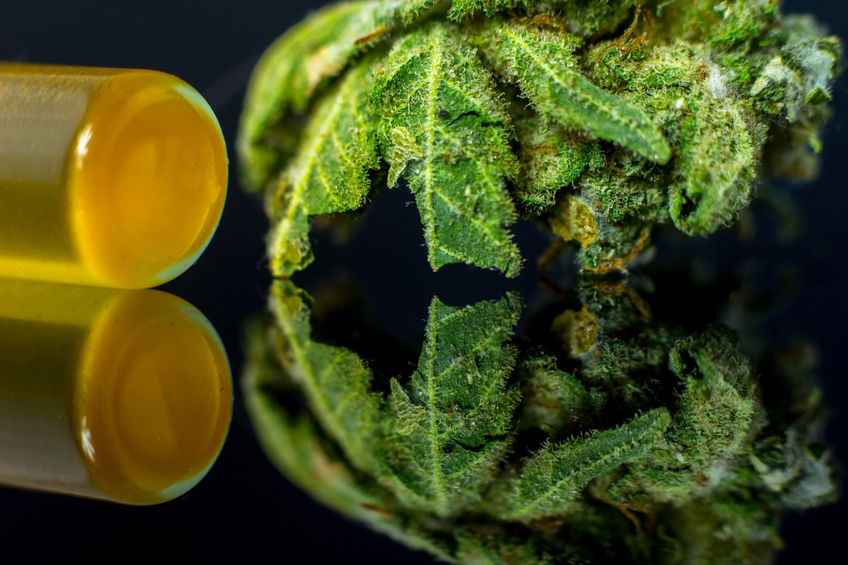
There’s a pretty easy explanation for this success: patients don’t have to meet qualifying conditions, and instead only need a referral from a physician. There are also no caps on dispensary licenses, which is why the current number is over 1,700. Additionally, the barrier to entry is low. According to the Arkansas Times, “The license to grow on a commercial scale or open a dispensary in Oklahoma is a flat $2,500 and a fare thee well, open to any Oklahoma resident who hasn’t had a felony in the past five years. Their law allows cardholders to possess up to a half pound of marijuana, and grow up to six plants at a time. Their law also made possession of up to 1.5 ounces by non-cardholders a misdemeanor punishable by a maximum $400 fine.”
Additionally, High Times Magazine put Oklahoma’s cannabis culture on the map when it held its renown Cannabis Cups in Oklahoma City in August.
Massachusetts Social Equity
As more recreational cannabis businesses come online in Massachusetts, the push for social equity is taking center stage. Real Action for Cannabis Equity (RACE) started in Boston in September, 2019 to address the dearth of minority-owned operators. Per Marijuana Business Daily, “Organizers say they’re frustrated that all but two of Massachusetts’ 184 marijuana business licenses were issued to white operators…black entrepreneurs in Massachusetts who say people of color are being shut out of the lucrative marijuana industry are joining forces to close the gap.”
New York Decriminalizes Cannabis
Though New York state failed to pass recreational cannabis during the 2019 legislative session, a last-minute compromise was reached on decriminalization. According to The New York Times,”Under the new law, possessing between one and two ounces of marijuana will no longer be considered a Class B misdemeanor. It will now be a violation, with fines up to $200. Those found with less than an ounce of marijuana will now face a $50 fine, compared with $150 previously.” In addition approximately 160,000 people will have cannabis convictions expunged from their records.

New Jersey Still has a Chance to Pass Recreational Cannabis
The Garden State saga to legalize recreational cannabis is back on. The state Legislature came up short on votes to pass a new law earlier in 2019, but the law-making body isn’t giving up, envisioning two scenarios:
- Holding another vote for the bill during the lame duck session at the end of 2019 or the first half of 2020
- Putting it on the ballot for the November, 2020 election
Governor Phil Murphy has voiced his preference of passing recreational cannabis through the Legislature versus relying on the ballot box. According to NJ.com, “Such a move would allow leaders to more easily mold and regulate the new marijuana industry. And waiting until next year’s elections means you likely won’t be able to consume weed legally in New Jersey until early 2021, at the earliest.”
Federal Cannabis Legislation: What You Need to Know
It seems commonplace that among the main news stories of the day, is a proposed federal congressional bill addressing cannabis reform. There are at least 10 right now with the most promising ones featuring bipartisan support. “Marijuana decriminalization may be one of the very few issues upon which bipartisan agreement can still be reached in this session,” said Rep. Tom McClintock (R-CA), adding “it ought to be crystal clear to everyone that our laws have not accomplished their goals.”
The two main strategies to end cannabis prohibition in the U.S. involve either legalizing at the federal level or creating immunity for states that pass their own legalization laws.
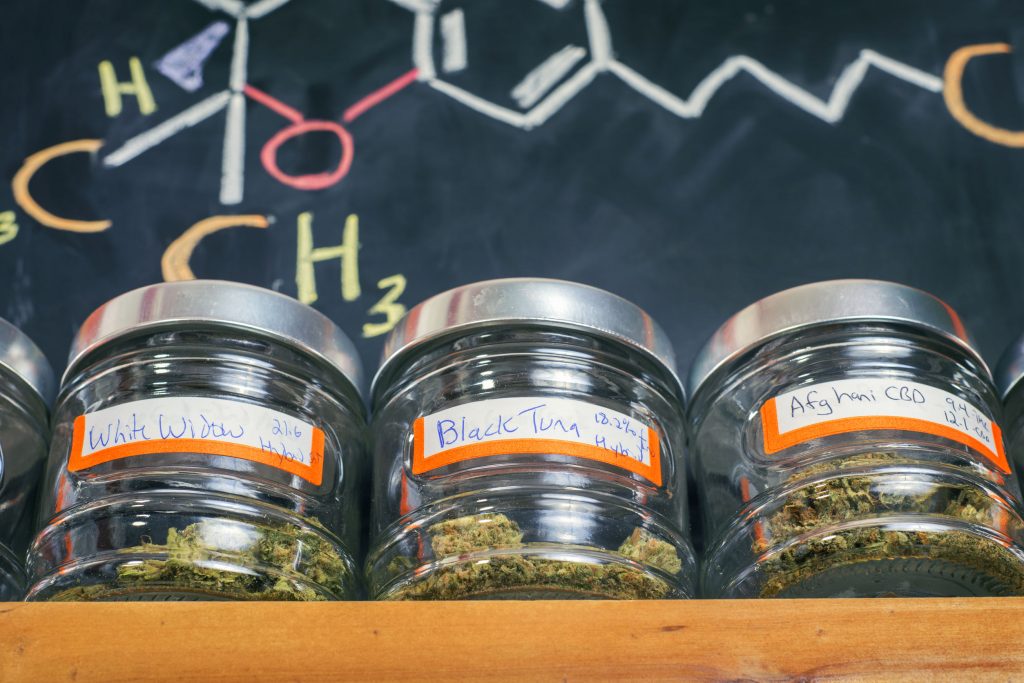
SAFE Banking Act
The SAFE Banking Act (H.R. 1595) would allow banks to work with the cannabis industry in legal states. This bill is unique because it has bipartisan support and it’s being moved along via committee hearing by Senate Banking Committee Chair Sen. Mike Crapo (R-ID) whose home state completely outlaws cannabis. Once opposed to any hearings due to the federal illegality of cannabis, Sen. Crapo has reconsidered. “We now need to, I think, move forward and see if there’s some way we can draft legislation that will deal with the issue,” said Crapo, according to Leafly News.
“Senator Crapo’s willingness to hold a hearing recently on the SAFE Banking Act was very encouraging,” Michael Correia, director of government relations for the National Cannabis Industry Association, told Marijuana Moment. “We’re thrilled to learn that he is open to solving this important issue and we are looking forward to working with the senator,” he added.
The STATES Act
Strengthening the Tenth Amendment Through Entrusting States, or The STATES Act (S. 3032), sponsored by Sen. Elizabeth Warren (D-MA), would amend the Controlled Substances Act and exempts state-approved marijuana activity from federal enforcement. In other words, states with a medical, adult use, or combined program could operate without ever fearing federal interference. The bill was first introduced in 2018 and reintroduced in 2019 with Sen. Cory Gardner (R-CO) signing on as a co-sponsor. The STATES Act was in response to the rescindment of the Cole memo, which President Obama created to protect legal cannabis state from federal interference.
However, there are those who believe the bill stops short of addressing racial and social matters. “We need to reinvest in those individuals and those communities that have been disproportionately impacted [by marijuana prohibition],” Baltimore State’s Attorney Marilyn Mosby, said. “The STATES Act does not do that, and that’s one of the reasons why I’m opposed to it.”
The two main strategies to end cannabis prohibition in the U.S. involve either legalizing at the federal level or creating immunity for states that pass their own legalization laws.
The MORE Act
The Marijuana Opportunity Reinvestment and Expungement Act, or The MORE Act, co-sponsored by House Judiciary Committee Chairman Jerry Nadler (D-NY) and Sen. Kamala Harris (D-CA), assuages those concerns. Considered the most comprehensive cannabis bill yet, it takes a three-pronged approach that addresses descheduling, state-control, and racial and social justice. If passed, the bill would remove cannabis from the Controlled Substances Act, allow states to write their own policies, and require cannabis convictions to be expunged or resentenced.
It creates further protections from the federal government, including prohibiting federal agencies from denying benefits to people found using marijuana and preventing immigrants from being deported for a cannabis-related conviction. The bill also sets up a 5 percent cannabis tax to establish grants for minorities and low-income communities.
“Racially motivated enforcement of marijuana laws has disproportionately impacted communities of color,” Nadler said in a statement. “It’s past time to right this wrong nationwide and work to view marijuana use as an issue of personal choice and public health, not criminal behavior.”
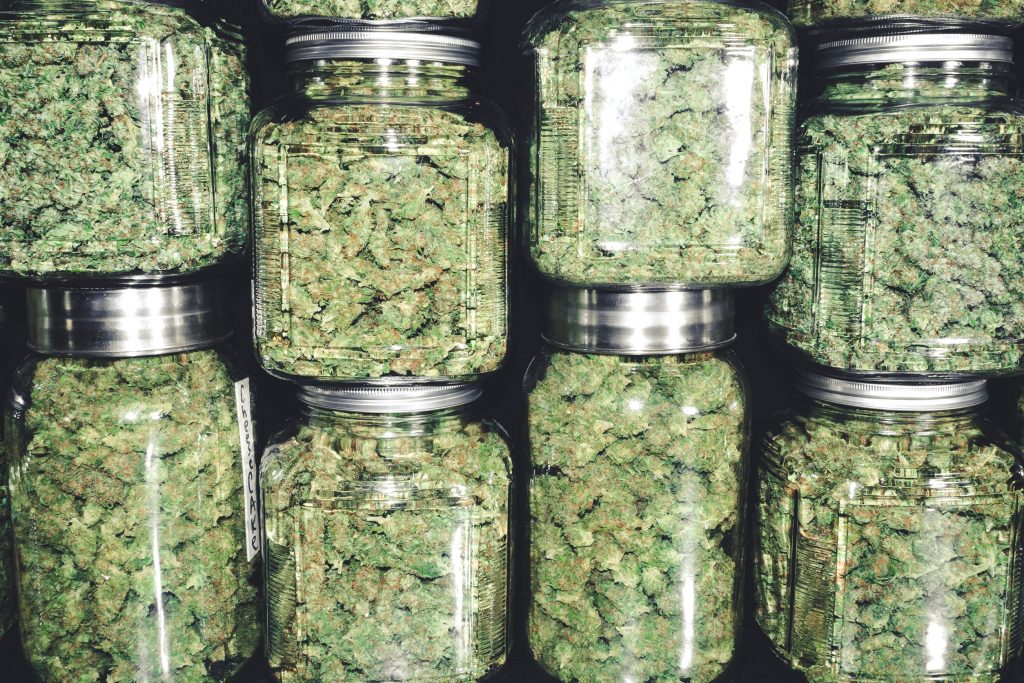
Amendment to H.R. 3055
This one is perhaps the most significant because it’s an Amendment that passed in the House of Representatives and is attached to an appropriations bill to fund parts of the federal government for fiscal year 2020. Specifically, the Amendment prevents the Department of Justice from interfering with state cannabis laws–covering D.C. and U.S. territories–including those allowing recreational use, cultivation and sales. It was approved by a floor vote of 267-165 with bipartisan support and is sponsored by Reps. Earl Blumenauer (D-OR), Eleanor Holmes Norton (D-DC), and Tom McClintock (R-CA).
“This is the most significant vote on marijuana reform policy that the House of Representatives has ever taken,” said NORML Political Director Justin Strekal. “Today’s action by Congress highlights the growing power of the marijuana law reform movement and the increasing awareness by political leaders that the policy of prohibition and criminalization has failed.”
Conclusion
Each of these pieces of proposed legislation come with “even if” or “even though” caveats. For example, even if the MORE Act were to pass the House, it would have a tougher time in the Senate. Even though the House approved the amendment that prevents the Department of Justice from interfering with state cannabis laws, will it achieve passage in the Senate and Senate Majority Leader Mitch McConnell (R-KY), who, though a champion of legalizing hemp, is opposed to cannabis? Still, the historic amount of cannabis bills and resolutions being drafted and considered by both chambers speaks to progress of cannabis legislation.
Cannabis Public Consumption: The Next Big Industry Development

With cannabis going mainstream and now firmly established as the fastest growing industry in America, business owners and state officials are partnering to create more opportunities for public consumption. Unlike with liquor at bars, restaurants, clubs, etc., one cannot legally purchase cannabis and use it onsite. So what gives? Public or social consumption of cannabis has been viewed as anathema by local governments, especially since it clashes with clean air ordinances. The tide is turning, though, as in the last few months a handful of states have passed new laws allowing licenses for cannabis lounges and other social spaces where consumers can legally consume products.
Alaska
Alaska Lt. Gov. Kevin Meyer (R) signed new regulations into law in March of 2019, issuing permits to businesses authorizing onsite consumption. The so-called “special onsite use endorsement” stipulates that consumption areas need to be physically separated from retail spaces, either by a wall and a secure door or an outdoor patio. The onus is on business owners to provide security plans and adequate ventilation. As is the case with most public consumption programs, local governments in Alaska will have the authority to prohibit onsite use outright or to tighten restrictions, including limiting consumption to vaping only.
California
The birthplace of social cannabis lounges in the U.S., California, is expected to open many more in the next couple of years. San Francisco leads the way with the most cannabis lounges, but recent legislation coming out of Los Angeles County will make municipalities like Los Angeles and West Hollywood the next leaders. LA county has been fielding social cannabis business applications since January of 2018, and West Hollywood changed codes and zoning regulations to allow public consumption in certain cafes and smoking lounges, and recently Assembly Bill 1465 was introduced that will allow smoking, vaping, and eating edibles.

“Another big move: West Hollywood will allow chefs to infuse cannabis into pre-planned and on-demand menus for onsite customers at new restaurants,” according to Forbes. “As the cafes come online over the next 12 months, West Hollywood will have more than double the number of cafes and lounges of any other city.”
Colorado
Colorado is the latest state to pass public consumption. House Bill 1230, set to take effect at the start of 2020, establishes regulations for retail stores to set up social consumption lounges, as well as allowing for mobile and temporary licenses. This means that businesses like music venues, art galleries, yoga studios, restaurants, and hotels can obtain public consumption permits and licenses for limited cannabis sales. There’s also a pathway for awarding temporary licenses for special events.
Colorado’s Marijuana Enforcement Division will process licence applications and serve as the state’s regulatory board. Per High Times “Like any industry’s regulatory requirements, businesses will still have to clear a few hurdles before they can let customers light up. First, business owners and cannabis advocates will have to convince local governments to opt in to the new law. Otherwise, the state won’t award a public consumption license. House Bill 1230 also gives local governments the authority to tweak the rules for public consumption. Towns could, for example, only approve certain forms of consumption.”
Illinois
The Illinois Cannabis Regulation & Tax Act includes an exemption to the Smoke-Free Illinois Act, which prohibits outdoor smoking, allowing cities to determine if they want to permit on-site cannabis use at lounges, bars, restaurants, and other places of business. For now, the state is leaving it up localities to opt in or out to public consumption. The City of Chicago is weighing its options. “The regulations around on-site consumption have not yet been finalized,” said Lauren Huffman, a city spokeswoman in an interview with The Chicago Sun-Times in September, 2019. “We are taking the initial step of introducing zoning regulations so we can start to give businesses certainty around where dispensaries will be located. We have not yet made final decisions around where and how on site consumption will be regulated, but are having ongoing conversations with our partners in the industry, the community and the City Council around the best way to regulate the practice.”
Nevada
Nevada’s recreational cannabis programs began in 2016, and now public consumption licenses will be granted. The Las Vegas City Council in May 2019 voted to allow existing cannabis businesses to apply for permits to open consumption lounges. Clark County Commissioner and former state senator Tick Segerblom, who is also considered Nevada’s cannabis ambassador, told the USA Today Network, “We’re the new Amsterdam. That should be a concern to gaming companies. They’re concerned about (lounges) making money outside the hotels. They’re worried the longer this goes outside hotels, the more established they’ll get. As a business person, I would be concerned too.”
While Las Vegas cannabis businesses hope to cash in on weed tourism, the gaming community wants to wall off its hotels and casinos. The Nevada Gaming Control Board, which has taken a conservative stance on cannabis, brokered a compromise with the city to create a 1,000 foot buffer between gaming establishments and cannabis lounges.
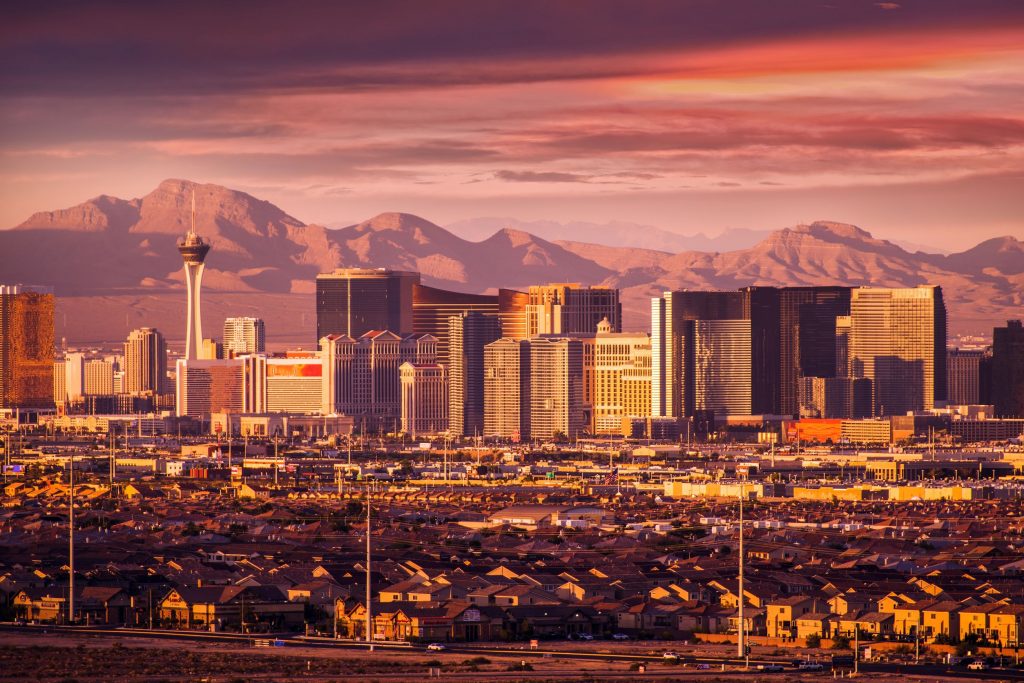
One business that’s not compromising or sparing any expense is Acres Cannabis, a 19,000 square-foot dispensary set to roll out a social consumption lounge that will include a concert hall and full-service kitchen launched with the Morton family of Morton’s The Steakhouse in Chicago.
According to msn.com, “After the city builds an application, 20 dispensaries – already open or forthcoming in Las Vegas this year – can apply for licenses to open lounges prohibited from selling alcohol. The ordinance excludes dispensaries on The Strip, which is controlled by Clark County, not the city of Las Vegas, as well as Henderson and North Las Vegas.”
What State Will be Next?
The new trend of public consumption is expected to expand, especially with new states like Illinois passing adult use programs. Oregon, currently a medical and recreational use state, appears next on the horizon. If passed, Senate Bill 639 would require the Oregon Liquor Control Commission to regulate social consumption businesses and event spaces, allow for the sale of cannabis in these clubs, tasting tours on farms and expanded legal cannabis delivery into private and temporary residences.
The Essential Staff of a Dispensary
Previously, we wrote about the essential staff of a cultivation facility, and now we turn our attention to dispensaries. Cannabis employment is exploding, and 2019 is projected to be a banner year for new-hires. The most in-demand jobs in medical and recreational markets are dispensary positions because these mostly customer-facing staff provide the greatest opportunity to interact with the general public.
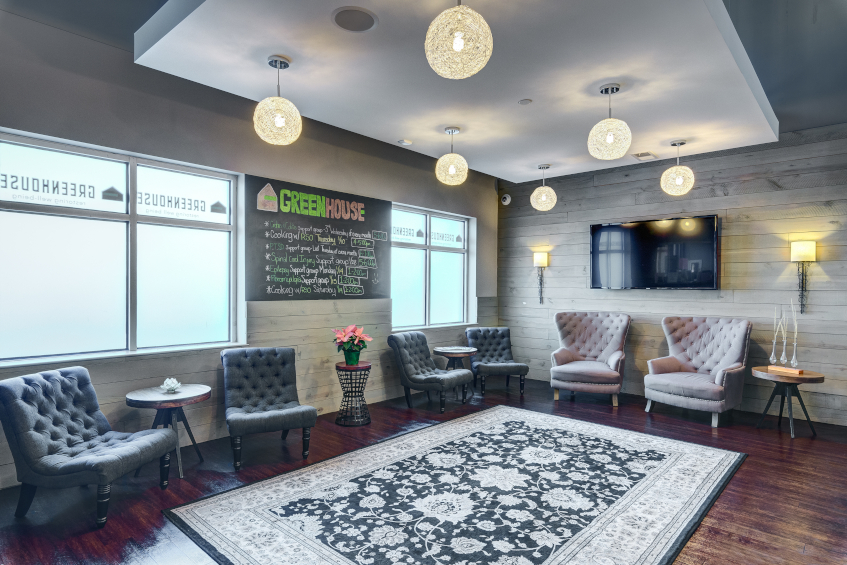
General Managers
Consumers enter a dispensary for a transactional and educational experience with the expectation of receiving quality customer service. They survey the products, interact with staff, and either buy or take a pass. It sounds simple, but behind the counter and the scenes it’s much more complex, and it starts at the top with the general manager. This crucial position oversees all functions and operations of a dispensary from interacting with vendors, dealing with law enforcement, and managing inventory to handling returns and of course, hiring, managing, and training budtenders and other staff. Certain medical dispensaries require general managers to be physicians, nurses, or pharmacists.
Budtenders
Budtenders play a critical role in creating a positive customer experience.Consumers, especially those new to cannabis, have lots of questions: What’s the difference between indica and sativa? What strain do you recommend for this or that? How is CBD oil different than oil with CBD and THC? What are tinctures? Budtenders spend the majority of their days working face-to-face with customers and providing knowledge and advice about cannabis products.
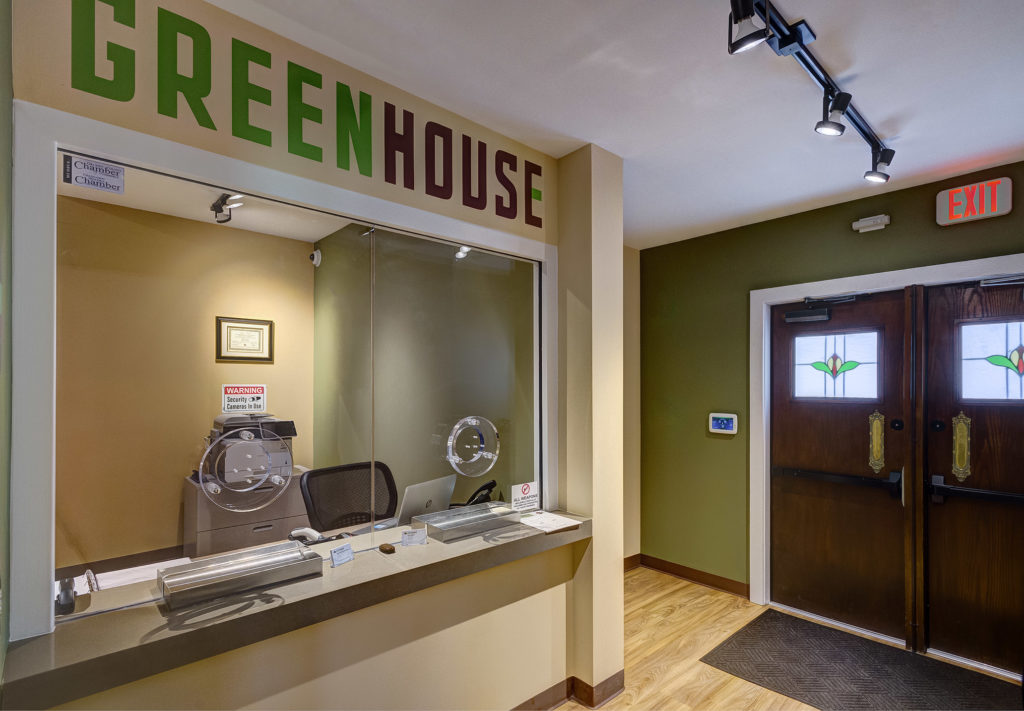
Administrative Staff Without people streamlining office functions, a dispensary would fail. Administrative staff are the unsung heroes that ensure dispensaries operate as well-oiled machines. They answer phones, handle customer inquiries, verify medical cannabis cards, and maintain patient records, among other duties.
Cannabis is the fastest growing industry in the country, expanding at an annual rate of 28 percent and expected to reach a value of $146 billion by 2025
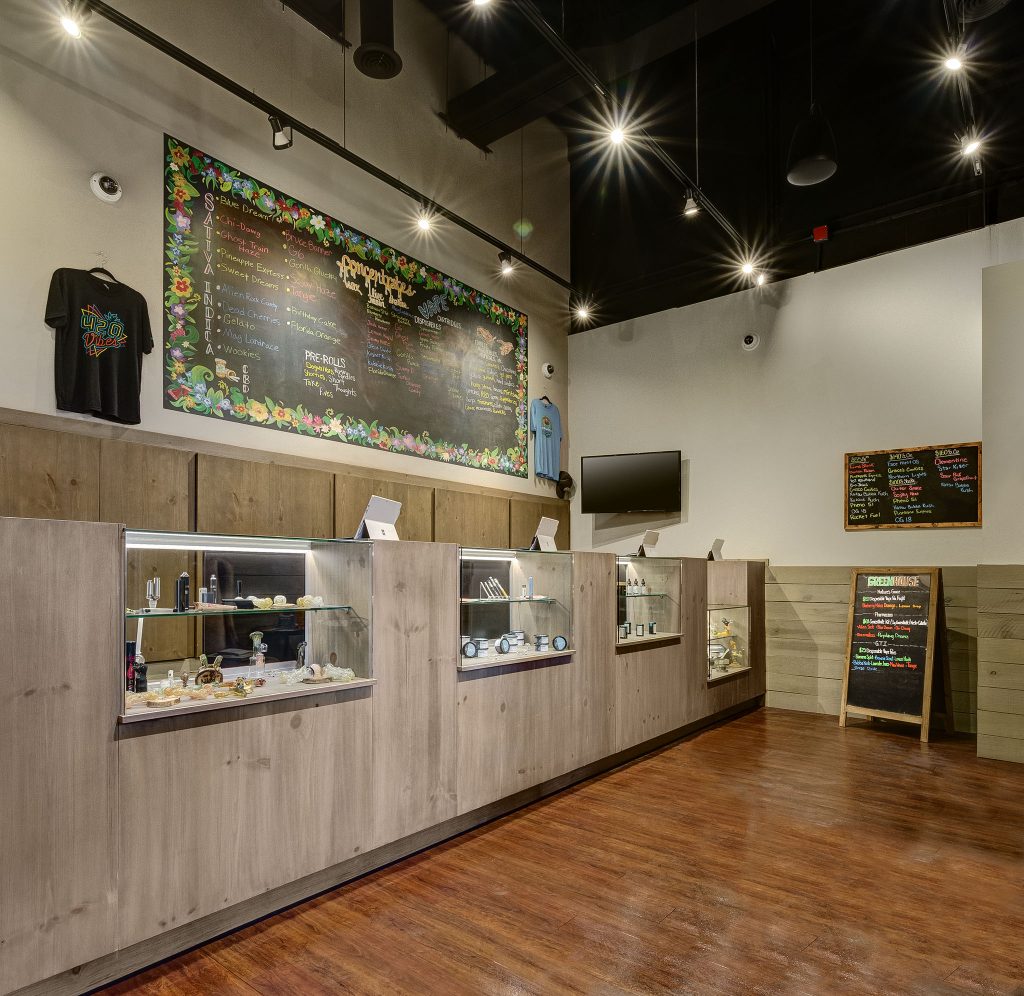
Security
There are efforts on the federal level to ease banking restrictions on cannabis businesses, most notably the States Act, but cannabis still remains a cash-only business. As such, dispensaries need physical security to protect assets while not scaring off customers. “While security is a tough game, you don’t want to set a tough tone between your security guard and cannabis consumer,” according to Marijuana Retail Report. “Work with your security staff to ensure that they embrace and understand the customer experience you are developing in-store. Since they are the first point of contact, ensure that they are helping consumers feel welcome and invited, yet are able to maintain a zero-tolerance stance on any customer activities that could present a perceived threat to your dispensary, staff and other customers.”
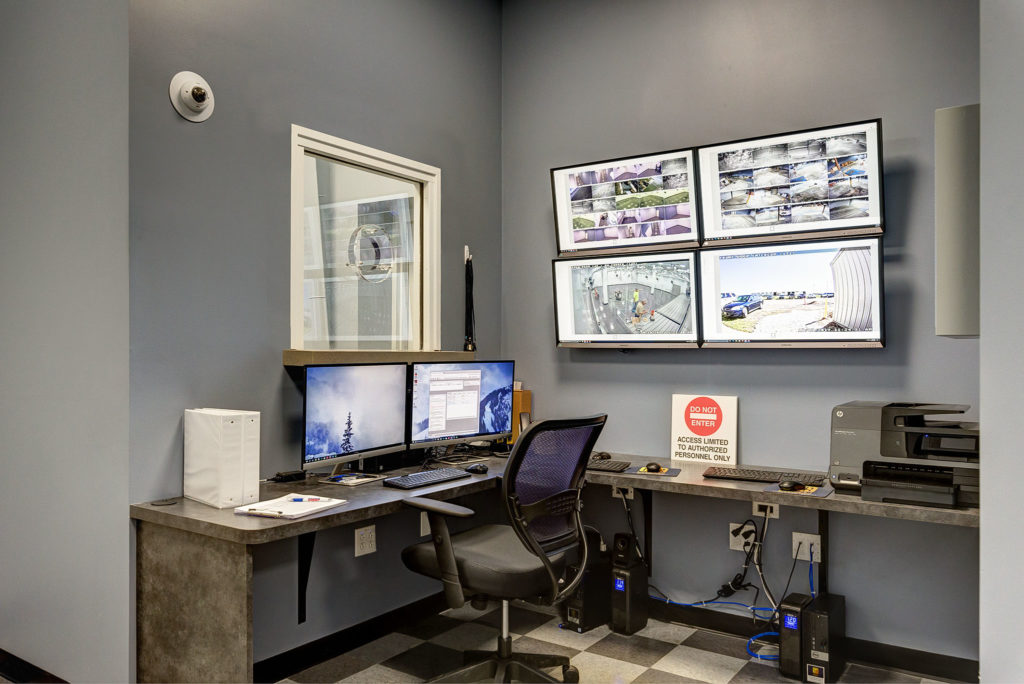
Conclusion
Cannabis is the fastest growing industry in the country, expanding at an annual rate of 28 percent and expected to reach a value of $146 billion by 2025. To keep up with the demand, not only does more product need to be cultivated, but it has to be sold to consumers. It takes the skill and knowledge of essential dispensary staff to keep these businesses running.
How Much Does It Cost To Start A Dispensary & Craft Grow
Cannabis Legalization News – Thomas Howard Podcast Featuring Andy Poticha
Tom Howard: It’s clearly 2:00 p.m. on a Wednesday, and so it’s cannabis legalization news time. We’ve had a huge week in cannabis legalization news. Illinois became … hey Miggy … what number is it?
Miggy: 11!
Tom Howard: 11. The big number 11, and we also have a guest joining us. It’s Andy Poticha. Say hi, Andy.
Andy Poticha: Hello.
Tom Howard: Awesome. Well, we’re going to round up the news, and then Andy is going to discuss with us his unique knowledge about something that’s so hot right now. The cost of getting into a cannabis cultivation facility in Illinois. They’re called, The Craft Grows or a dispensary, but first, I think the biggest news of the week was of course that JB Pritzker signed it into law. Now, it’s number 11, but there’s been a lot of other really cool federal news, and Miggy have you heard anything on the west coast? Is there anything that you’re working on for weednews.co.
Miggy: No. Not me, per se. I mean state-by-state has been great also with New York and Texas and Ohio, but those are all more medical and one is decriminalization. The Banking Act.
Tom Howard: The Banking Act. I’m actually going to present to everybody, that’s another thing. So FinCEN did just release, and says that FinCEN publishes these on a quarterly basis, but of course it takes them a little bit of time to get the actual date. This came out this past week, and it’s current as of April 1. When the quarter ends here in about a week for June, these numbers will be updated and then FinCEN will publish that in another couple of months.
Tom Howard: But you can see the sharp uptick right there. Q3 2018. Basically JB Pritzker won, and then maybe this was also some New York thing. They don’t really publish those, but this is the number of banking institutions that are lending to marijuana. Interestingly enough, the thing that you see when you are lending to marijuana a lot, and hopefully my screen was on there, is –
Miggy: Hey, Tom.
Tom Howard: They file nondisclosure agreements and all that other stuff to kind of keep it secret, but this uptick, and a fairly large uptick according to the number of banks that are actually banking cannabis, somewhat corresponds to the stuff that’s been coming out of Congress. This is a really fresh news. This is from the Marijuana Moment, just from like a half hour ago.
Miggy: Oh nice.
Tom Howard: Right. And if you’re not familiar with what’s going on in the federal level, especially when it comes to banking and cannabis, it has to do with two things. One is the defunding of the war against marijuana for everything, not just medical, but state law marijuana. Second is the continuing pushing of the Safe Banking Act, placing it into the funding bills itself. As we get up the fiscal cliff, the fiscal cliff happens every year September 30 because that’s when the federal budget actually ends. The budget that will be passed that will continue to fund, that’s how hemp was legalized. That’s how the first war on marijuana was defunded back in 2014, through Rohrabacher-Farr Amendment just for the medical. It looks like the budget for 2020, plus Illinois going open for business, will really signal it’s time to go. It’s time to lend to cannabis businesses, and I would not be surprised if New York next year legalizes it. I think 2020’s going to be the biggest year for cannabis legalization ever. What about you, Miggy?
Miggy: No, I totally agree, especially since the House agrees to protect the legal states. That’s a huge step towards legalization, like you said. Just like jury nullification but in a financial way of how to attack prohibition.
Tom Howard: There’s jury nullification. That’s great, but you’re already being prosecuted. You’re on trial. Imagine if you could just stand up during a trial and be like, “Excuse me, Your Honor. There’s no money for this trial.”
Miggy: Yeah, yeah. That’s for sure. Defunding the war on drugs. I think that’s the best way to put it. FYI, when you had the chart on the screen, on YouTube, I was a predominant screen.
Tom Howard: That gets back to, I really need, and if anybody’s out there that is majoring in YouTube, and also social media SEO and has a paralegal degree, I will hire you because I am doing this all myself. And it’s sad. Somebody could be managing this, and then I could get back to work for the clients, which are just blowing up my phones. It’s going great, but that’s one of the reasons why we brought our guest on. He has actually designed and built cannabis facilities in Illinois. Andy.
Andy Poticha: Yes?
Tom Howard: How many of these facilities have you built?
Andy Poticha: In Illinois, we have completed four dispensaries and one cultivation, and are working on one cultivation and another dispensary at this point. That’s just in Illinois. We’ve been doing work in other states outside of Illinois as well. We’re working on our 8th state, actually.
Continue reading “How Much Does It Cost To Start A Dispensary & Craft Grow”
Success Story Part 2: Converting a Historical Restaurant Into The Greenhouse Dispensary
Part 1 of our Success Story focused on the historical journey of the restaurant bar that became the focal point of the Greenhouse Dispensary in Morris, Illinois. The story continues below, detailing how Cannabis Facility Construction fulfilled The Greenhouse’s vision of converting the Rockwell Inn into a dispensary, while honoring the restaurant’s legacy as a source of community pride.
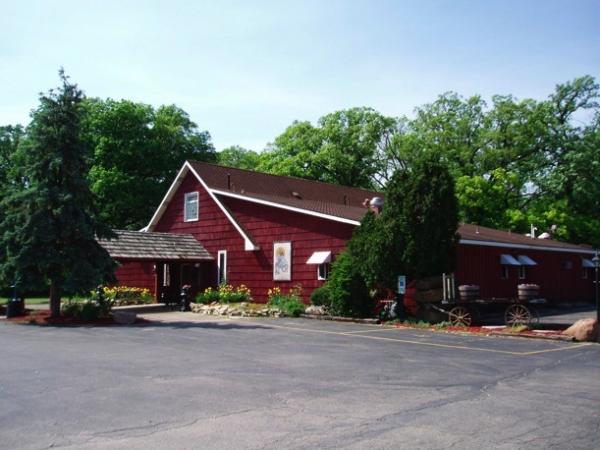
Not a Traditional Design-build Project
Converting a restaurant into a dispensary presented many challenges, including:
Earning the Trust of the Community
One of the biggest questions we faced was: How do we create the optimal retail space that is focused on the client while preserving the history of the old space? For us, a true partnership revolves around the trust and buy-in from all stakeholders. We were sensitive to the fact that we were introducing a new industry and purveyor to this jurisdiction. Showing respect for the community helped us achieve the buy-in we needed.
Wear and Tear
Given the age of the restaurant facility and its use, it was hardly in the same condition as buildings we previously worked with. For starters, it was a large, free-standing property with multiple additions created throughout its history. Some areas had concrete floors and others, wood floor joists. Often we’d encounter rotted wood and other material deterioration. Compared to a retail space, restaurants have unique issues like grease, dirt, and rodents that we don’t encounter when remodeling, for example, a clothing store inside of a strip mall.
Sewage Problems
We determined that the lot sat below street level, and consequently, the sewage had not been pumped into a lift station. We discovered that over the years, the restaurant only had band aids in place to address the problem.
Reclaiming the 150 Year-Old Bar
We had to figure out how to make this beautiful, legendary bar functional for staff and valuable to the customer experience. It now serves as the centerpiece of an open and comfortable space where visitors interact with budtenders and learn about the products.

Leveraging Our Trade Partners
We used a talented group of trades and suppliers to complete the project. Across the board–from plumbers, electricians, and millworkers to heating, flooring, life safety, HVAC, security and sprinkler system specialists – our trusted partners played key roles in the renovation.
It All Comes Together
The result of our renovation is 5,200 square feet of usable space, outfitted with an inviting waiting area and an open and comfortable shop with the reclaimed bar as its hub. Understanding, learning, and operating in buildings that are 50-150 years-old is where we cut our teeth. The whole idea of opening up walls, making discoveries, and maximizing value for our clients is what we live for. We’ll give the last word to Mitch Kahn, CEO and founder of Grassroots, a national leader in medicinal cannabis, and the parent company of Greenhouse: “It really is just a neat building with character that we wanted to keep, from the tin ceiling to the bar that’s over 100 years old, and retrofit it to our purposes. We saw the promise of remodeling an old building and turning it into a modern facility.”
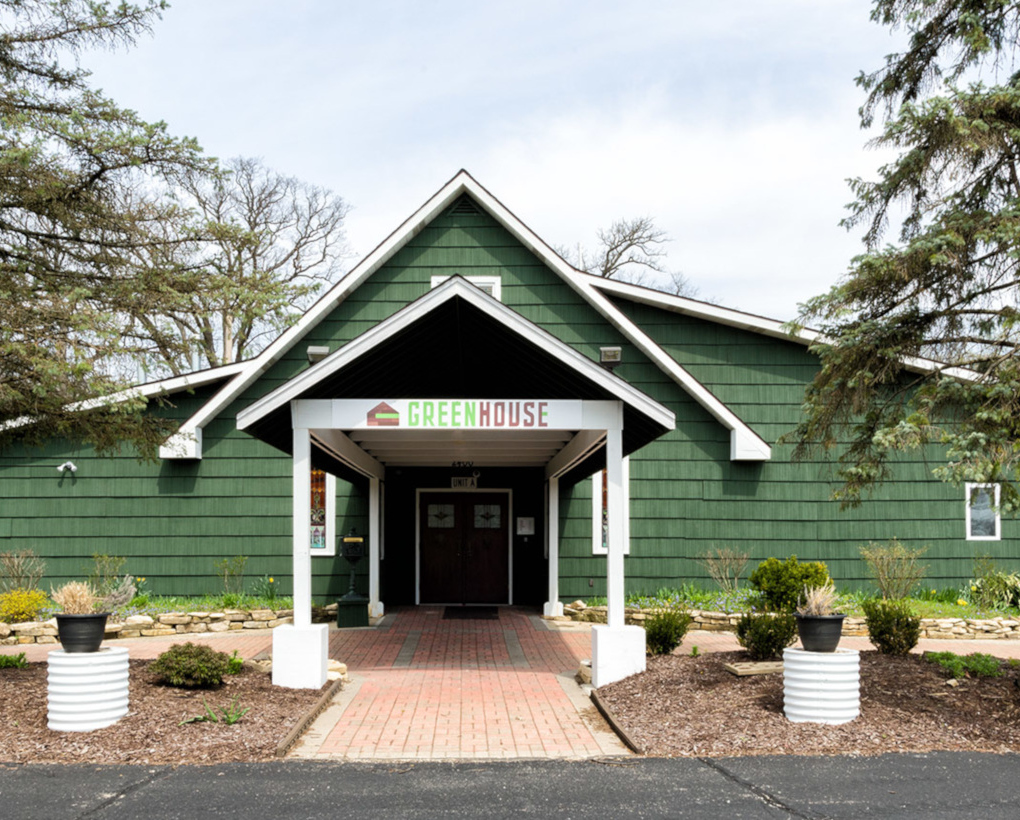
Illinois Recreational Cannabis: What You Need to Know
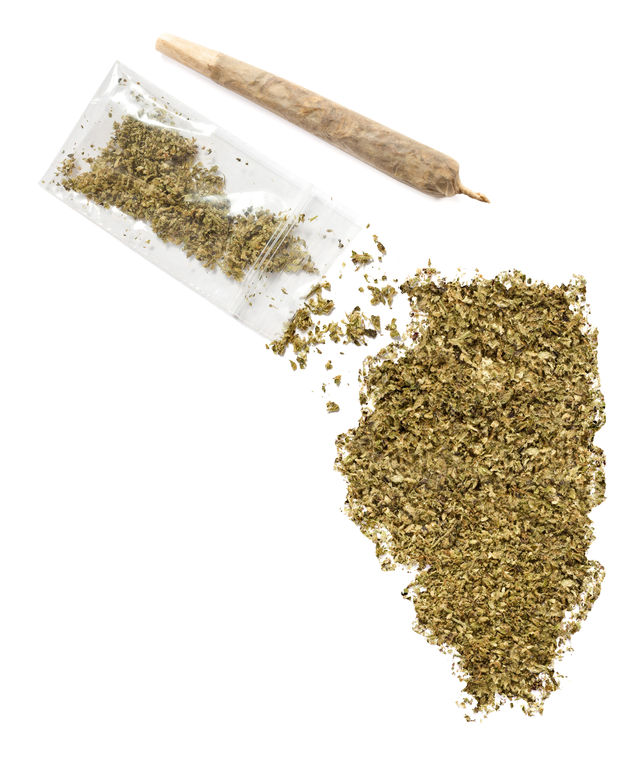
“In the interest of equity and criminal justice reform, I look forward to signing this monumental legislation,” said Illinois Governor, J.B. Pritzker, following the passage of House Bill 1438 on Friday, May 31, 2019. The 66-47 vote made Illinois the 11th state to legalize adult-use cannabis and the first to do so through the state legislature. Vermont’s program was approved through its legislature but does not permit commercial sales. Approval in other states occurred via referendum.
The bill, which passed 38-17 in the state Senate two days earlier, focuses on social equity and addressing Illinois’ financial deficit. Chicago Crain’s Business reports that, “Illinois expects sales to eventually reach $1.5 billion to $2 billion a year, producing $500 million in revenue for the cash-strapped state.”
Following the November, 2018 midterm elections, we commented on what Governor Pritzker’s election victory would portend for the future of cannabis in Illinois. Once he signs the bill, it will be the law of the land.
Here’s what you need to know about the new law:
Growing and Selling
Recreational sales will begin on January 1, 2020, with priority given to businesses with current medical licenses. They will be eligible to start cultivating, producing, and selling cannabis for retail use.

According to the Chicago Tribune, “Only the 20 existing licensed medical marijuana cultivation facilities will be licensed to grow it initially. Next year, craft growers may apply for licenses to cultivate up to 5,000 square feet, with preference given to applicants from minority areas disproportionately affected by the war on drugs, such as the South and West sides of Chicago. Medical marijuana dispensaries and new retail stores will be licensed to sell it.”
Buying
The bill allows for Illinois residents 21 and older to possess up to 30 grams or roughly one ounce of cannabis flower or bud. They are also allowed five grams of cannabis concentrate or 500 milligrams of THC in a cannabis-infused product. Adults visiting the state can possess up to 15 grams of cannabis. Growing plants at home will remain illegal except for certified medical patients.
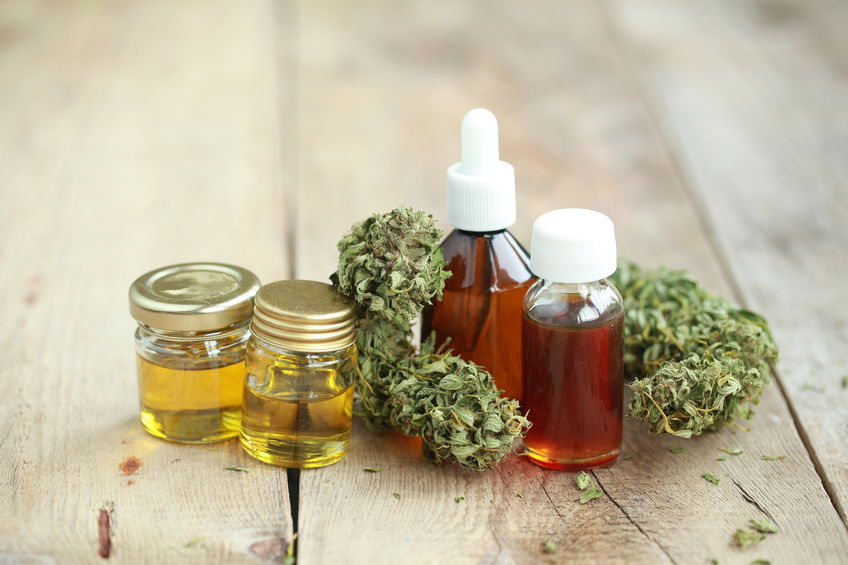
Impact on Convictions
Central to the bill was the expungement of cannabis convictions.
“While the usage of cannabis has been the same across all racial groups, the actual incarceration charges have been shown to be seven times more likely for people of color than Caucasians,” said Illinois State Senator. Heather Steans (D-Chicago), the Senate bill’s main sponsor. “This bill is going to set the model, I believe, the gold standard, for how to approach social equity issues related to cannabis legalization.”
Here’s what’s at stake for convicted felons, according to the Chicago Tribune: “The governor will pardon past convictions for possession of up to 30 grams, with the attorney general going to court to expunge or delete public records of a conviction or arrest. For possession of 30 to 500 grams, an individual or a state’s attorney may petition the court to vacate and expunge the conviction, but prosecutors may object, with a judge to make the decision.”
Taxation
Per ABC News and the Chicago Tribune, consumers will be taxed in the following way:
- A 10% tax will be levied on cannabis products containing less than 35% THC
- 20% for cannabis-infused products like edibles
- 25% for THC concentrations of more than 35%
Additional state and local taxes apply and can be as high as 9.75%, including:
- 3% municipality
- 3.75% county in unincorporated areas
- 3% in Cook County (Chicago)
Opting In or Out
Similar to other adult use programs, local governments may opt in or out. According the Chicago Tribune, “Municipalities and counties may ban cannabis businesses within their boundaries, but may not ban individual possession. Any person, business or landlord may prohibit use on private property. Colleges and universities may continue to prohibit marijuana use.”

Where You Can and Cannot Consume
Usage at home is permitted as long as it’s out of view of the public. Places where use is strictly prohibited include: public areas, school grounds, in any motor vehicle, in a correctional facility, around someone under 21, while driving a boat or flying a plane, or by a school bus driver, police, fire or corrections officer while on duty.What Else?
Cannabis remains a Schedule 1 illegal drug by the federal government; however, federal law enforcement tends not to prosecute possession of small amounts or businesses complying with state programs.
Medical cannabis was also a winner at the eleventh hour of the legislative session. The House passed the bipartisan SB 2023, which will make the Compassionate Use of Medical Cannabis Pilot Program Act permanent while broadening its scope. Illinois State Representative Bob Morgan’s (D) reauthorization bill removes the program’s July, 2020 sunset and adds more patient qualifying conditions, including chronic pain and autism.
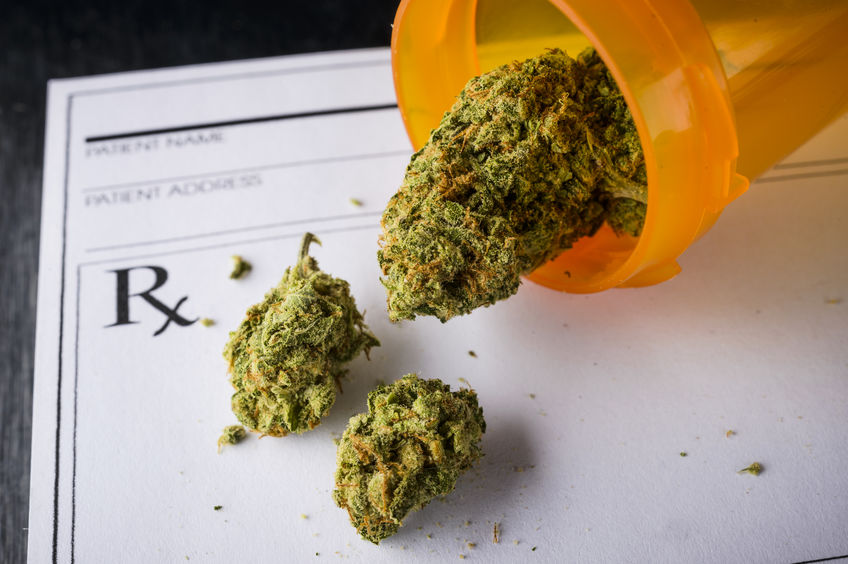
The bill also permits advanced practice nurses and physician assistants to recommend medical cannabis in addition to physicians and increases the number of caregivers that patients can use to access the program. Similar to the adult-use program, the reauthorization bill emphasizes equity standards and will award five dispensary licenses to ensure equal opportunity.
“It is critical for the state that the pilot program be reauthorized and revised,” said Morgan in a press release. “The initial program placed a significant regulatory burden on patients. With the passage of SB2023, the new program will streamline the process and help patients suffering from debilitating medical conditions.”
Fire Proofing Your Cannabis Facility
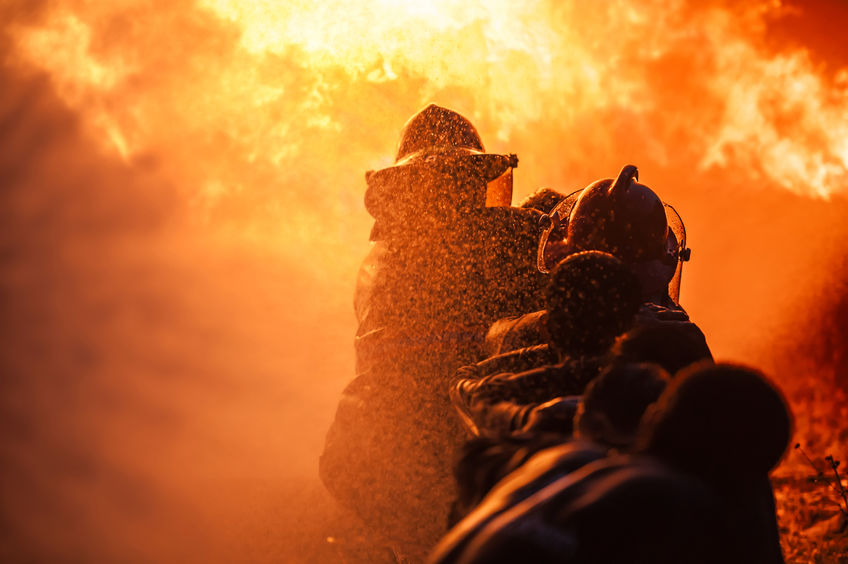
Earlier this year, Politico published a story on the outbreak of fires and explosions at Cannabis extraction facilities. It documented 10 incidents over the last five years where hash oil was being extracted. The reporting shed light on the risks involved in the process: “Extracting hash oil from cannabis is dangerous because typically it requires pouring highly-flammable butane or some other volatile solvent into a cannabis-filled pipe,” according to the story.
These accidents, sometimes deadly, serve as a cautionary tale for one of the fastest growing industries in the country. As Politico notes, “…labor unions complain that state governments are moving too swiftly to license producers, outpacing the states’ ability to inspect production facilities for potential safety violations.”
We’ve previously written about the significance of physical and cyber security for cannabis businesses, and here we discuss the importance of fire proofing your cannabis facility.
Get Educated
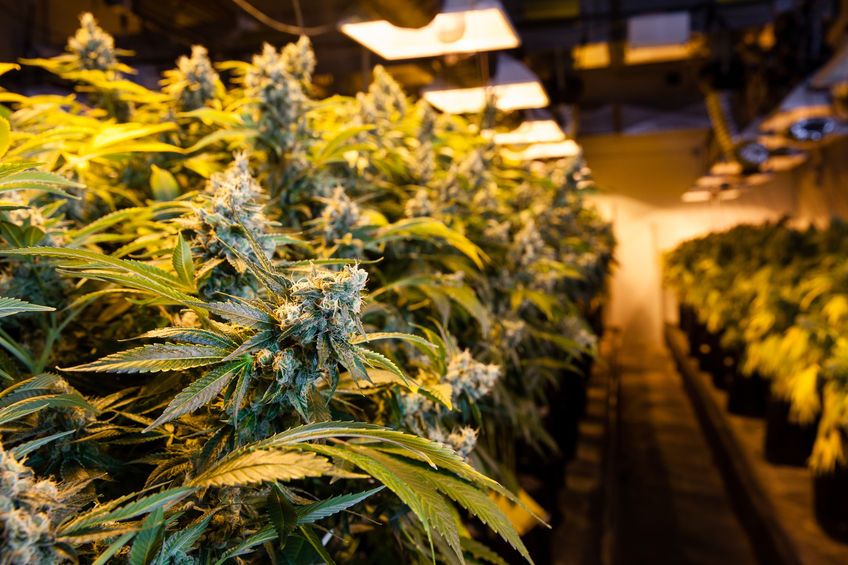
In the rush to keep up with the demands of growing markets, cannabis facility owners need to take a step back and ensure they have safety protocols in place. This is especially challenging for two reasons: 1) safety compliance is determined at the state level since cannabis remains federally illegal, and 2) “Most of the states where marijuana is legal offer no safety and health guidance for the new industry,” according to Politico. “The National Institute for Occupational Safety and Health, which researches work-related injury and illness, has conducted only two hazard evaluations of legal marijuana facilities, neither of which focused on the extraction of hash oil.”
“Even in those states that do offer safety and health
guidance — Colorado, California, Michigan, Oregon,
and Washington — fire safety officials complain that
worker safety protections are often inadequate.”
Still, business owners can educate themselves and their employees by engaging with their local fire department so that they are in step with fire code, permitting, and inspections.
Speaking of which…
Seek Permits and Inspections
Mark de Souza, CEO of Chicago-based Revolution Enterprises, recently warned of the pitfalls of the cannabis industry’s growth outpacing regulation. “I have long thought the best way to help Illinois citizens deal with this change is to ensure the industry grows in tandem with the state’s ability to regulate it,” he wrote in Crain’s Chicago Business. “And by ‘regulate it,’ I mean ensure that its use remains safe…Creating a new and unregulated market overnight—in a business that some citizens find unusual and scary—seems the easiest way to ensure its failure.”
An area related to this concern is acquiring the requisite permits and scheduling routine inspections to protect facilities. In the last year, the National Fire Protection Association (NFPA) updated its fire code to address these issues. Per Politico “The revised code requires any hazardous hash-oil extraction process to be performed in a non-combustible room, in a building that contains no child or health care facilities. Staff must be trained on safe operation of the extraction equipment, and the extraction room must be equipped with a gas detection system and multiple fire extinguishing systems.”
Utilize a Closed Loop System
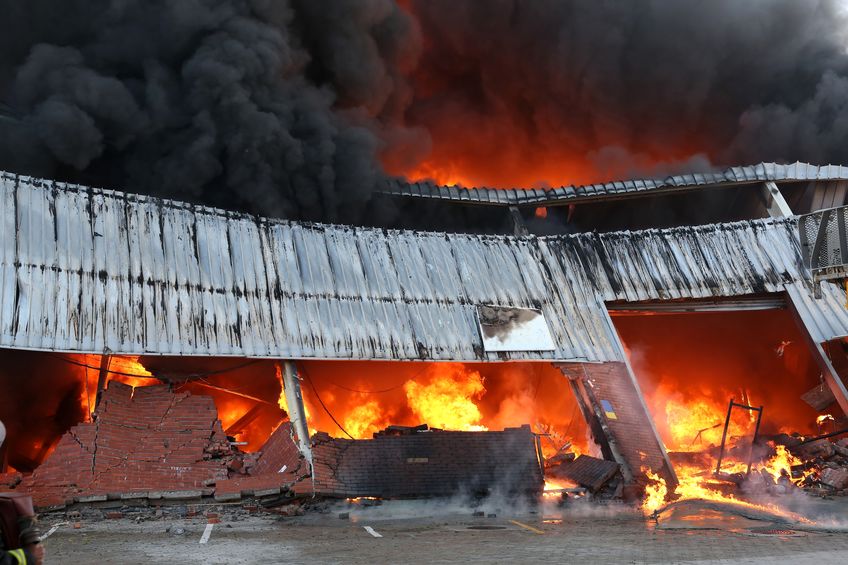
Cannabis or hash oil extraction via a closed loop system is the safest method. Compared to open blasting, which uses flammable solvents, closed loop systems contain these in extraction cylinders. Open blasting, dangerous as it is, is not uncommon and has resulted in devastating accidents. In June of last year, an extraction facility in Millcreek, Utah exploded, and two people experienced severe burn injuries in Sonoma County, California while extracting hash oil by open-blasting. Closed loop is only safe if strictly adhered to. Marijuana Venture advises following the manufactures’ instructions for equipment to a T and being vigilant about every detail, like routinely tightening bolts on extraction cylinders.
Don’t Do it Yourself
Some cannabis facility owners and operators skirt safety and compliance checks to be operational faster. In addition to obviously violating the law, this can create hazardous conditions, especially where electrical systems are concerned.
“Where necessary, hire a professional,” advises Marijuana Venture. “Building, fire and electrical codes must be followed. Don’t overload the electrical panel. Don’t steal power from a nearby building. Be careful with wall construction. Pay attention to door sizes. And perhaps most importantly, everything should be properly permitted.”
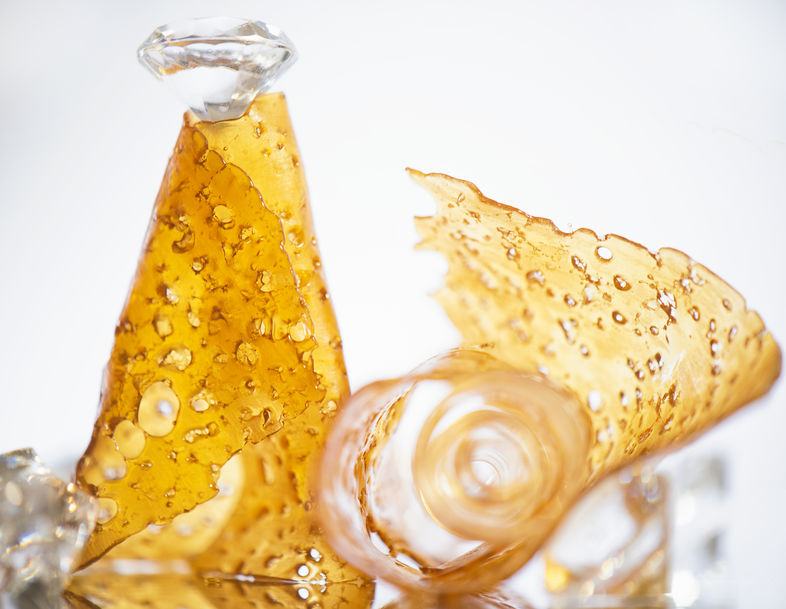
Recourse
Cannabis businesses are on notice and have suffered financial and legal consequences. California and New Mexico’s occupational safety and health agencies issued fines of $50,470 and $13,500, respectively, against a cannabis manufacturer and processor for explosions that occurred at their facilities. Felony charges were brought against an Oregon business owner whose employees sustained burn injuries following an incident.
In addition to NFPA’s increased efforts, labor groups in states considering cannabis legalization are advocating that labor peace provisions requiring marijuana processors to ease the path to unionization be incorporated into legislation. Other states like Rhode Island and Arizona are weighing making extraction against the law altogether. Either way, there are enough resources and education to mitigate the risks of fire at your cannabis facility.
